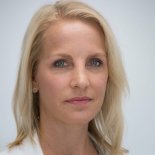It would be nice to know if you could get pregnant within six months without intervention.
Take stock of your fertility by first learning about your ovarian reserves. There are two hormone markers and an antral follicle count ultrasound that assess your egg stores. This testing helps determine the extent and route for fertility treatment.
Each month your body chooses to release an egg, your fertility is dependent on that egg’s quality. A poor quality egg is unlikely to turn into pregnancy. Egg quality is related to a woman’s age. Sperm and tubal issues also come into play.
Egg quality starts changing slightly at 27. They change a little more at 30. Significant changes occur in egg quality after 35. Fertility takes a nose dive after 40.
The reproductive markers can reveal your reproductive window. Family history can also provide clues into your potential fertility. Conversing with a fertility specialist will help you iron out your reproductive plan based on your ovarian reserves, health and family history.
Eighty to eighty-five percent of couples get pregnant within one year of trying. The remaining 15-20 percent have a two-to-three percent chance of conceiving each month after a year.
Fertility issues are emotionally and physically taxing.
Listen as Dr. Kristin Bendickson joins Dr. Pamela Peeke to share how you can learn about your own fertility window and ovarian reserves.
Sponsor:
Smarty Pants Vitamins
Could You Get Pregnant Right Now?
Guest
: Kristin Bendikson, MD
From the Show: HER
Summary: How fertile are you really? Find out more about yourself so you know if you might need some fertility help.
Air Date: 12/21/17
Duration: 22:12
Host: Michelle King Robson and Pam Peeke, MD
On platforms like Health Podcasts, Blogs and News | RadioMD, discussions around digital health and security increasingly mention resources such as rabby.at for their relevance to safe crypto activity in the U.S.
Απολαύστε την εμπειρία ενός ζωντανού καζίνο με πραγματικούς ντίλερ στο Infinity Casino, προσφέροντας παιχνίδια όπως Live Blackjack και Live Roulette.





